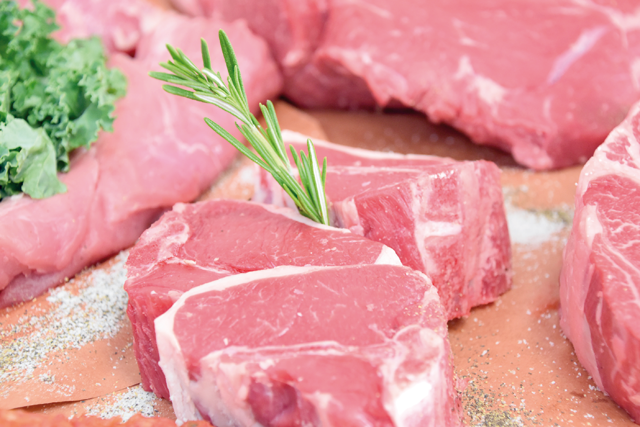AMMAN — Demand for red meat, both local and imported, rose during the first days of Ramadan, reaching a 90 per cent increase — and in some stores exceeding 100 per cent — compared with last Ramadan, according to president of the Livestock Breeders Association, Zaal Al Kawalit.
According to Kawalit, there is abundance in supply of local and imported meat that should be sufficient throughout the days of the holy month
Demand is expected to continue at the same pace over the next two weeks, he added.
Kawalit called on merchants not to hoard meat so as not to encourage local prise increases.
In a press statement sent to The Jordan Times, the association confirmed that the prices of slaughtered local lamb have stabilised, with medium and large sheep selling for JD9.5, and small sheep selling for between JD10 and JD11.
The price of a kilo of imported sheep has remained at JD8 in the local market.
“The suspension of meat exports to the Gulf markets increased the availability of red meat locally,” Kawalit added.
“Ramdan is a very good season for us. Demand increases by 50-70 per cent. However, prices are stable because there are large quantities of meat available, including lamb and sheep,” said Jamal Husni, a worker at a butcher’s shop in Northern Hashemi.
According to the Livestock Breeders Association, the Kingdom’s need for veal meat during the holy month amounts to 3,750 tonnes.
The association noted that currently, quantities of veal meat available in the market amount to 12,200 tonnes, which is sufficient to cover the Kingdom’s demand for 100 days.
There are also shipments planned to arrive in the last two weeks of the holy month, according to the association.
Jordan has more than 19 sources from which meat is imported, including sheep and cows, according to Kawalit.
Imported meat constitutes more than 70 per cent of the demand in the local market due to its comparatively lower price when compared with domestic products, he added.
According to Kawalit, more than 80,000 workers, most of them Jordanians, work in the livestock sector, including breeders and workers in dairy production.
